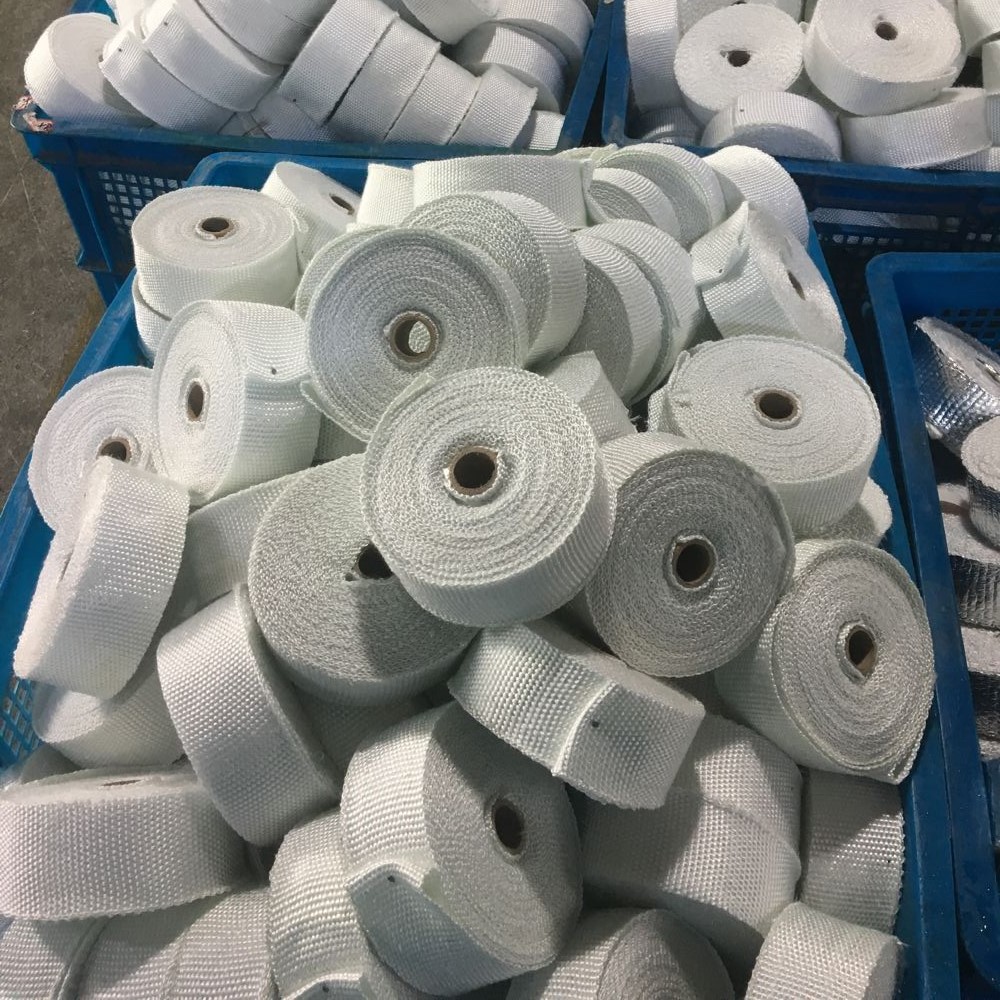環境問題に対する世界的な認識が高まるにつれて、産業は生態学的影響を減らすための持続可能なソリューションをますます探しています。 プラスチック、ゴム、特定の金属などの従来の材料は、生産から廃棄まで、重大な環境危害に寄与する可能性があります。 グラスファイバー織りテープ オファー 耐久性のある環境に優しい代替品、製品の寿命を強化し、廃棄物を減らすプロパティを使用します。 この投稿では、それを探ります 持続可能性の機能 グラスファイバーが織ったテープと、なぜそれが選択の素材になりつつあるのか 産業 抱きしめたい グリーンテクノロジー.
グラスファイバー織りテープの主な環境に優しい利点の1つはそのものです 例外的な耐久性。 時間の経過とともに劣化する従来の素材とは異なり、グラスファイバー織りテープが抵抗します 摩耗, 熱, 化学物質、 そして 水分。 これは、産業用アプリケーションではずっと長く続くことを意味し、頻繁な交換の必要性を減らし、廃棄物を最小限に抑えることを意味します。 ●tを交換する必要がある材料を使用することにより、企業は大幅に減らすことができます 環境負担 製品の処分によって引き起こされます。
実世界の例:
で 自動車 そして 航空宇宙産業、グラスファイバー織りテープが適用されます ワイヤー, ケーブル、 そして エンジンコンポーネント 熱と摩耗からそれらを保護するため。 その長寿命により、これらのコンポーネントは頻繁な交換を必要としないことを保証し、材料の廃棄物を減らし、製造の全体的な環境への影響を減らす必要があります。
グラスファイバーです リサイクル可能、これは、プラスチックやゴムなどの従来の材料よりも大きな利点であり、多くの場合、埋め立て地で終わるか、費用のかかるエネルギー集約的なリサイクルプロセスを必要とします。 グラスファイバー織りテープがライフサイクルの終わりに達すると、さまざまな形で再利用または再利用でき、 循環経済.
さらに、 グラスファイバー生産 通常、 より低い二酸化炭素排出量 プラスチックのような合成的な代替品と比較してください。 グラスファイバーの作成に使用される材料は、より持続可能であり、両方の点で環境への影響が小さくなります リソース抽出 そして エネルギー消費 製造中。
実世界の例:
で 電気システム、グラスファイバー織りテープは、断熱と保護に使用されます。 システムがアップグレードまたは廃止された場合、テープを取り外してリサイクルすることができ、廃棄物を減らし、より多くに貢献します 持続可能なライフサイクル。 これは、ような業界で特に重要です 再生可能エネルギー、環境への影響を最小限に抑えることが重要な目標です。
グラスファイバー織りテープです 無毒 そして 有害な化学物質がない PVCなど。これは、不適切に燃焼または廃棄されたときに有害な煙を放出する可能性があります。 これにより、環境だけでなく、その生産と用途に関与する労働者の健康のために、従来の材料に代わるより安全な代替品になります。
対照的に、従来の素材のようです プラスチック断熱 または ゴムコーティング 多くの場合、含まれています フタル酸塩, 重金属、および人間の健康に有害であり、長期にわたる環境汚染に寄与する他の化学物質。 グラスファイバー織りテープはaを提供します より安全 そして より緑の解決策、産業が環境への影響を最小限に抑えるだけでなく、彼らの産業が 職場の危険.
実世界の例:
で 製造 そして 工事、グラスファイバー織りテープが使用されます 絶縁配管, シーリングシーム、 そして ケーブルの保護。 従来の断熱材とは異なり、グラスファイバー織りテープは、使用、取り扱い、または廃棄中に環境に有害な物質を浸出させず、健康と安全に焦点を当てた企業にとって環境に優しいオプションとなっています。
グラスファイバー織りテープが貢献します エネルギー効率 のパフォーマンスを改善することにより、産業用途で 熱管理システム。 その 耐熱性 それが●の温水パイプを保護するかどうかにかかわらず、エネルギーの流れを維持するのに役立ちます 建設業界 または、高温排気システムをラッピングします 自動車セクター。 エネルギーの損失を減らすことにより、グラスファイバー織りテープは間接的に全体的に低下するのに役立ちます エネルギー消費 そして 炭素排出 産業プロセスに関連付けられています。
などの業界で 自動車製造、排気システムとエンジンコンポーネントを隔離するためにグラスファイバー織りテープを使用すると、これらの部品からの熱損失が減少し、車両全体が改善されます 燃料効率 そして パフォーマンス。 これは、製品の寿命にわたるエネルギー使用量の削減に貢献し、最終的には車両の減少を減らすのに役立ちます。
実世界の例:
で HVACシステム、グラスファイバー織りテープを使用して、ダクトワークと配管を隔離します。 これ 断熱効率 建物を加熱または冷却するのに必要なエネルギーを減らし、システムをよりエネルギー効率が高く、化石燃料への依存度を低下させるのに役立ちます。
他の合成材料とは異なり、生産 グラスファイバー織りテープ より少ない 有毒化学物質 低い必要があります エネルギー消費 プラスチックやゴムと比較して。 これにより、製造プロセスが作成されます リソース集約型の少ない、そして全体的に 環境にはあまり有害です.
グラスファイバーは、豊富な天然資源を使用して作ることができ、その生産プロセスの多くは使用できます 非毒性物質、環境全体のフットプリントを削減します。 さらに、 グラスファイバー生産 プラスチックベースの製品の生産と同じ規模で有害な温室効果ガスを放出しません。
実世界の例:
で グリーンビルディングプロジェクト、持続可能性が重要なデザインの目標である場合、グラスファイバー織りテープが使用されます 熱絶縁 の パイプ そして 電気配線。 生産中の環境への影響の低下は、プロジェクトと完全に一致しています。 エネルギー効率 そして グリーン認証.
グラスファイバー織りテープはaを提供します 持続可能なソリューション パフォーマンスと耐久性を維持しながら、環境への影響を軽減しようとする業界向け。 その 長寿命, リサイクル性, 非毒性、 そして 低炭素生産 それを作ります 緑の代替 プラスチック、ゴム、PVCなどの従来の材料に。 産業が持続可能性を採用し続けるにつれて、グラスファイバー織りテープは、廃棄物を最小限に抑え、炭素排出量を削減し、幅広い用途で環境に優しい材料の使用を促進する上で重要な役割を果たします。
会いたい企業のために 環境基準, 無駄を減らします、そして強化します パフォーマンス, グラスファイバー織りテープ 長期的な利益をもたらす賢明で環境に優しい選択です。 入るかどうか 自動車, 工事, 電気、 または 製造 セクター、この汎用性のある材料は、運用コストと環境コストの両方を削減するのに役立ち、それをの重要な要素にしています グリーンテクノロジー 持続可能な産業慣行
